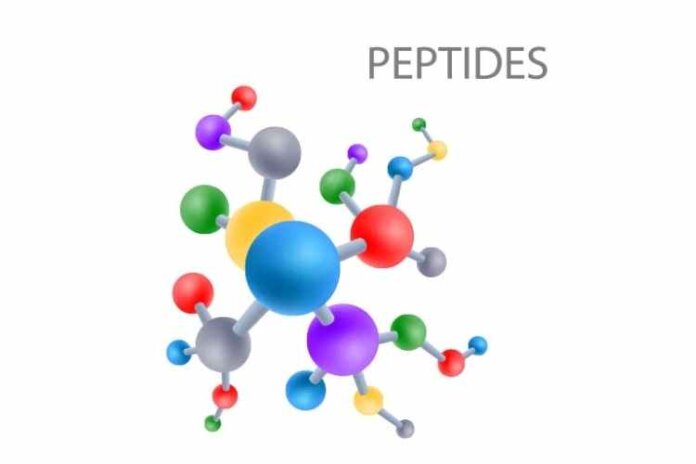
Have you heard of peptides and do you want to learn more about what they are and what they do?
We all experience the aging process differently. For some, the natural aging process produces external changes, such as wrinkles and skin changes. The internal aging process results in muscle changes, brain changes, and hormonal changes.
Peptides have the ability to help people turn back the clock and reduce aging signs. It’s a powerful weapon in the fight against the signs of aging, it provides a natural solution.
Let’s look at what are peptides and what they do in this article below.
What Are Peptides?
Peptides are chains of amino acids that are the building blocks of proteins. Proteins are essential for the structure and function of all cells in the body.
Peptides are too small to be considered proteins, but they can have similar effects as proteins when they bind to receptors on cells. Peptides are also involved in many biological processes, including digestion, metabolism, immune response, and neurotransmission.
What Do Peptides Do?
Peptides can act as hormones, enzymes, and neurotransmitters, and are involved in a wide range of biological processes. Peptides can be divided into two main categories: natural and synthetic.
Natural peptides are typically produced by the body, while synthetic peptides are made in the lab. Peptides can also be found in all body tissues, including the brain, muscles, and skin.
How Do Peptides Work?
Many of these peptide bonds have important functions in the body, such as dipeptides and tripeptides that are involved in the digestion of proteins. Peptides can also be used as drugs or therapeutic agents.
Peptides also work by interacting with receptors on cells, which triggers a response in the cell. Peptides are involved in a wide range of biological processes, including cell signaling, metabolism, and growth and development.
What Are the Benefits of Peptides?
Peptides have a wide range of potential benefits, including the ability to improve muscle mass and strength, increase fat loss, enhance the immune system, and protect against age-related diseases.
Peptides are also being studied for their potential to treat a variety of other conditions, such as diabetes, arthritis, and depression.
You can also learn more here to know about other interesting peptide benefits.
Are There Any Side Effects of Peptides?
Peptides are generally safe and well-tolerated, but there are some potential side effects to be aware of. Peptides can cause nausea, vomiting, and diarrhea. They can also cause dizziness, headaches, and muscle cramps.
Peptides can interact with other medications, so it is important to talk to your doctor before taking them.
Learn What Are Peptides Today
Peptides can be used to help with various conditions and diseases and can help to improve overall health and well-being. They are important for everything from regulating metabolism to aiding cell communication.
Peptides are created naturally by the body, but can also be found in some foods and supplements.
If you are interested in learning more about what are peptides and how they can help you, you can contact a trusted healthcare professional.
Did you find this article helpful? Check out the rest of our blogs!











